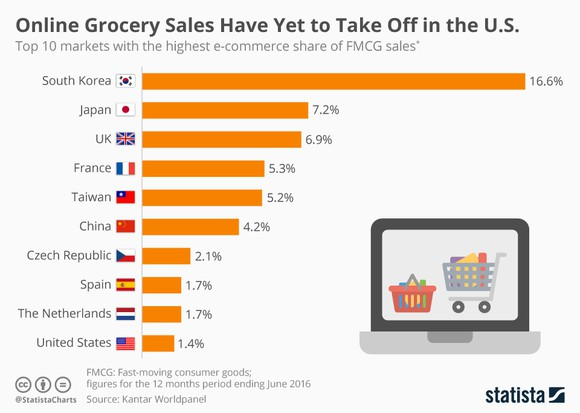Minneapolis – 12/24/2017
Each year we like to review and commentate on the most impactful technology and business concepts that are likely to significantly impact the coming year. Although this list is incomplete, these are three items worth dissecting.
3. The Hyper Expansion of Cloud Services Will Spur Competition and Innovation:
Cloud computing is a utility that relies on shared resources to achieve a coherent economy of scales benefit – with high-powered services that are rapidly provisioned with minimal management effort via the internet (Fig. 1). It presently consists of these main areas: SaaS (software as a service), PaaS (platform as a service), and IaaS (infrastructure as a service). It is typically used for technology tool diversification, redundancy, disaster recovery, storage, cost reduction, high powered computer tests and models, and even as a globalization strategy. Cloud computing generated about $127 billion in 2017 and is projected to hit $500 billion by the year 2020. At this rate, we can expect many more product startups and consulting services firms to grow and consolidate in 2018 as they are forced to be more competitive thus bringing costs down.
The line between local and cloud computing is blurry because the cloud is part of almost all computer functions. Consumer-facing examples include: Microsoft OneDrive, Google Drive, GMAIL, and the iPhone infrastructure. Apple’s cloud services are primarily used for online storage, backups and synchronization of your mail, calendar, and contacts – all the data is available on iOS, Mac OS, and even on Windows devices via the iCloud control panel.
Fig. 1. Linked Use Cases for Cloud Computing.

More business sided examples include: Salesforce, SAP, IBM CRM, Oracle, Workday, VMware, Service Now, and Amazon Web Services. Amazon Cloud Drive offers storage for music, images purchased through Amazon Prime, as well as corporate level storages that extends services for anything digital. Amazon’s widespread adoption of hardware virtualization, service-oriented architecture with automated utilization will sustain the growth of cloud computing. With the cloud, companies of all sizes can get their applications up and running faster with less IT management involved and with much lower costs. Thus, they can focus on their core-business and market competition.
The big question for 2018 is what new services and twists will cloud computing offer the market and how will it change our lives. In tackling this question, we should try to imagine the unimaginable. Perhaps in 2018 the cloud will be the platform where combined supercomputers can use quantum computing and machine learning to make key breakthroughs in aerospace engineering and medical science. Additionally, virtual reality as a service sounds like the next big thing; we will coin it (VRAAS).
2. The Reversal of Net Neutrality is Awful for Privacy, Democracy, and Economics:
Before it was rolled back, net neutrality required service providers to treat all internet traffic equally. This is morally and logically correct because a free and open internet is just as important as freedom of the press, freedom of speech, and the free market concept. The internet should be able to enable startups, big companies, opposing media outlets, and legitimate governments in the same way and without favor. The internet is like air to all these sects of the economy and to the world.
Rolling back net neutrality is something the U.S. will regret in coming months. Although the implications of it are not fully known, it may mean that fewer data centers will be built in the U.S. and it may mean that smaller companies will be bullied out of business due to gamified imbalances of cost in internet bandwidth. Netflix and most tech companies dissented via social media resulting in viral support (Fig 2).
Fig 2. Viral Netflix Opposition to Rolling Back Net Neutrality.

Lastly, it exacerbates the gap between the rich and the poor and it enables the government to have a stronger hand in influencing the tenor of news media, social norms, and worst of all political bias. As fiber optic internet connectivity expands, and innovative companies like Google, Twitter, and Facebook turn into hybrid news sources, a fully free internet is the best thing to expose their own excesses, biases, and that there are legitimate conflicting viewpoints that can be easily found.
1. Amazon’s Purchase of Whole Foods Tells Us the Gap Between Retailer and Tech Service Company is Closing:
For quite a long time I have been a fan of Amazon because they were anti-retail establishment. In fact, in Amazon’s early days, it was the retail establishment that laughed at them suggesting they would flounder and fail. “How dare you sell used books by mail out of a garage”. Yet their business model has turned more into a technology and logistics platform than a product-oriented one. Many large and small retailers and companies of all types – employ their selling, shipping, and infrastructure platform to the degree that they are, in essence, married to Amazon.
Magazine Business Insider said, “The most important deal of the year was Amazon’s $13.7 billion-dollar acquisition of Whole Foods. In one swoop, Amazon totally disrupted groceries, retail delivery, and even the enterprise IT market” (Weinberger, 12/17/17). The basis for this acquisition was that grocery delivery is underserved and has huge potential in the U.S. as the population grows, less people own cars, and people value not wasting time walking around a retail store so much (getting socialized to a new level of service) (Fig 3).
Fig. 3. How Amazon Can Use Whole Foods to Serve High Potential Grocery Delivery.

By Jeremy Swenson and Angish Mebrahtu
Mr. Swenson and Mr. Mebrahtu meet in graduate business school where they collaborated on global business projects concerning leadership, team dynamics, and strategic innovation. They have had many consulting stints at leading technology companies and presently work together indirectly at Optum / UHG. Mr. Swenson is a Sr. consultant, writer, and speaker in: business analysis, project management, cyber-security, process improvement, leadership, and abstract thinking. Mr. Mebrahtu is a Sr. developer, database consultant, agile specialist, application design and test consultant, and Sr. quality manager of database development.


